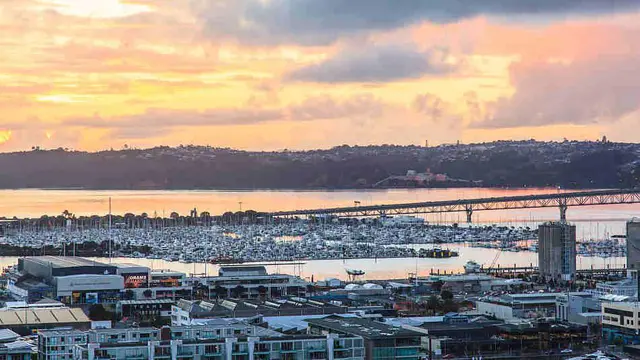A ban on foreign investment in New Zealand’s residential housing market has triggered a dramatic slump in property sales.
The new legislation which effectively blocks non-resident foreigners from buying existing homes was introduced by the ruling Labour government to stop what it called “overseas speculators” forcing up prices beyond the reach of ordinary New Zealanders.
Westpac Banking Corporation Chief Economist Dominick Stephens said that housing market turnover shot higher in October 2018 just before the ban came into force, “but has subsequently tanked.”
According to the latest statistics in December 2018, the decrease in houses sold across New Zealand was down to 12.9 percent to the lowest level in seven years.
Hardest hit was the nation's largest city of Auckland where sales fell by 24.3 percent, followed by the capital city of Wellington where the decline was 16.2 percent. Stephens said the regional breakdown suggests that “the foreign buyers ban fingerprints are all over this” given that the decline matches “where foreign buyers were most active.”
David Parker, associate finance minister /CGTN Photo
In a brief statement, Associate Finance Minister David Parker said he was “pleased to see the ban was having an effect,” but that the foreign buyers ban is only one of the many factors influencing the market. “Other factors include nervousness brought about by the recent softness in Australian house prices.”
The government argued that the foreign buyers ban will ensure that house prices are set by New Zealand-based buyers, not international buyers, and make property more affordable – especially for first home owners. However, Parker has conceded that house prices in places like Auckland and the popular southern resort town of Queenstown remain expensive for first home buyers.
Indeed, the December figures indicate that the national median house price actually rose in December by 1.5 percent to 551,750 NZ dollars.
Real estate signs in Auckland /CGTN Photo
The opposition National Party has also criticized the foreign buyers ban for having unintended consequences. The legislation was crafted to create new opportunities for overseas developers to apply for consent to buy residential land to build apartments, however, opposition Housing and Urban Development spokesperson Judith Collins says fewer places are now being built.
However, there may be a glimmer of hope that prices might eventually fall. While Westpac economists believe that there could be a modest pickup in the housing market in the early part of 2019 due to low interest rates and the easing of bank lending restrictions, the prospect of new government regulations – including a possible capital gains tax on investment properties – will probably force prices down in the years to come.
(CGTN)
 简体中文
简体中文

